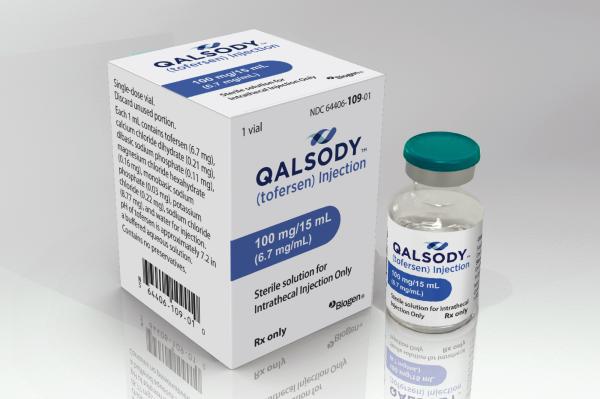Tofersen Side Effects
Medically reviewed by Drugs.com. Last updated on Mar 9, 2025.
Applies to tofersen: intrathecal solution.
Precautions
It is very important that your doctor check your progress closely while you are receiving this medicine to see if the medicine is working properly and to decide if you should continue to receive it. Blood tests may be needed to check for unwanted effects.
This medicine may cause myelitis (inflammation of the spinal cord) and radiculitis (nerve problem). Check with your doctor right away if you have back numbness, pain, tingling, or weakness.
Check with your doctor right away if you have confusion, headache, severe nausea or vomiting, or vision changes. These may be symptoms of papilledema (eye problem) and increased intracranial pressure.
This medicine may cause aseptic meningitis (inflammation of the brain). Check with your doctor right away if you have fever, headache, nausea, stiff neck or back, or vomiting.
Serious side effects of tofersen
Along with its needed effects, tofersen may cause some unwanted effects. Although not all of these side effects may occur, if they do occur they may need medical attention.
Check with your doctor or nurse immediately if any of the following side effects occur while taking tofersen:
More common side effects
- arm, leg, or back pain
- difficulty in moving
- joint pain or swelling
- muscle aches, cramps, pains, or stiffness
- nerve pain
- unusual tiredness or weakness
Less common side effects
- back numbness, tingling, or weakness
- blurred vision
- change in ability to see colors, especially blue or yellow
- confusion
- fever
- headache
- severe nausea or vomiting
- stiff neck
See also:
For healthcare professionals
Applies to tofersen: intrathecal solution.
General adverse events
The most common adverse reactions occurring in 10% of patients or greater included pain, fatigue, arthralgia, increased cerebrospinal fluid white blood cells, and myalgia.[Ref]
Immunologic
- Very common (10% or more): Anti-drug antibodies (58.4%)[Ref]
Musculoskeletal
- Very common (10% or more): Arthralgia (14%), myalgia (14%), musculoskeletal stiffness (6%)[Ref]
Nervous system
- Very common (10% or more): Cerebrospinal fluid white blood cells increased or pleocytosis (14%)
- Common (1% to 10%): Cerebrospinal fluid proteins increased (8%), neuralgia (6%), myelitis and radiculitis (4%), elevated intracranial pressure and/or papilledema (2.7%), aseptic meningitis (1.4%)[Ref]
Other
- Very common (10% or more): Pain including extremity and back pain (42%), fatigue (17%)
- Frequency not reported: Pyrexia[Ref]
References
1. (2023) "Product Information. Qalsody (tofersen)." Biogen Idec Inc, 1
More about tofersen
- Compare alternatives
- Dosage information
- During pregnancy
- Drug class: miscellaneous central nervous system agents
- Breastfeeding
- En español
Patient resources
Other brands
Professional resources
Other brands
Related treatment guides
Further information
Tofersen side effects can vary depending on the individual. Always consult your healthcare provider to ensure the information displayed on this page applies to your personal circumstances.
Note: Medication side effects may be underreported. If you are experiencing side effects that are not listed, submit a report to the FDA by following this guide.

